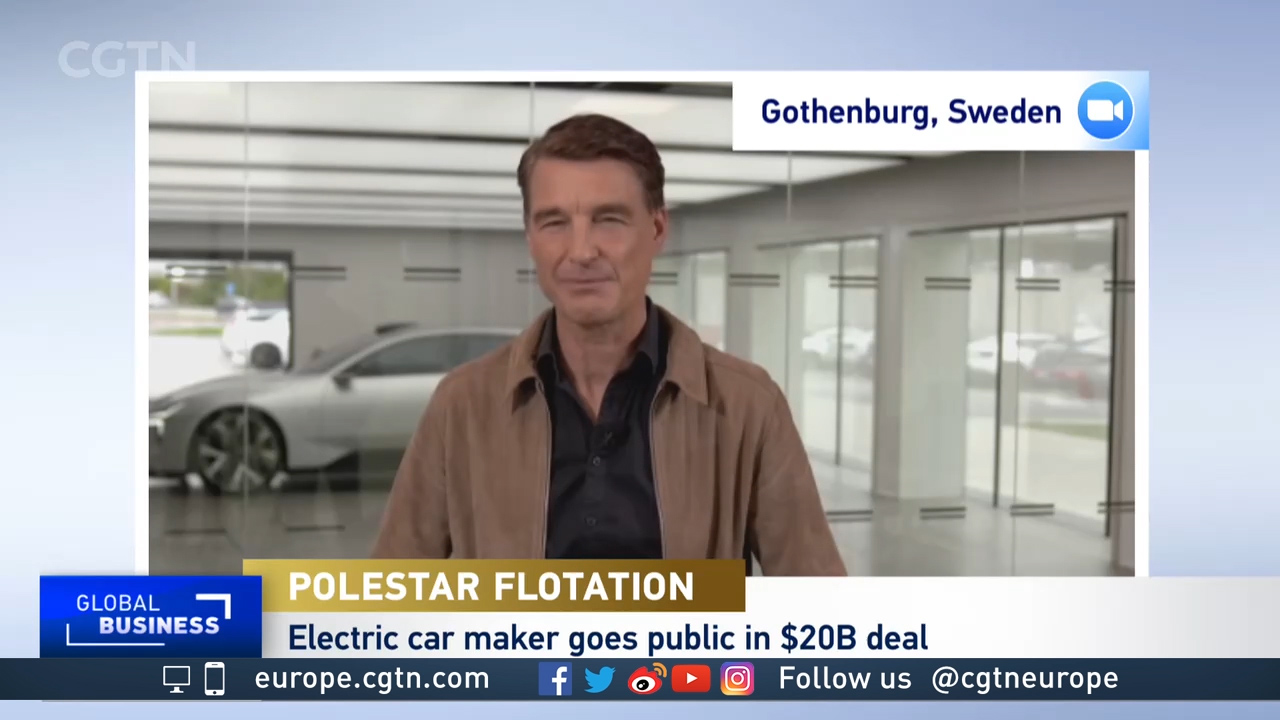04:05

Polestar CEO Thomas Ingenlath is confident enough private car owners will turn to electric vehicles (EVs) in the next 10 years for it to become the dominant mode of sustainable transport.
While he's backing EVs over the long term, some of the biggest players in the industry, including BMW and Audi, are developing hydrogen fuel-cell passenger vehicle prototypes and a debate is raging about which will become the most popular sustainable cars of the future.
Polestar has announced plans to list on the Nasdaq with a target value of $20 billion and has confidence in the longevity of its battery-based plan. Speaking to CGTN Europe's Global Business program, Ingenlath said: "I think its very, very clear that the way towards zero emissions will go the electric path and electric cars will be fed by batteries for the rest of the decade to come."
READ MORE
Hungary signs gas deal with Russia
What are Germany's coalition options?
Rome's Tiber river 'at risk'
Ingenlath, who was previously senior vice-president at Swedish car manufacturer Volvo, did concede that other options for public transport and heavy goods vehicles are being considered. "The the way to participate in this electrification might be different for buses and trucks," he said.
"But when it comes to the private mobility [market], then electric cars powered by batteries is not debatable."

Existing investors in Polestar include affiliates of Geely Chairman Eric Li and actor Leonardo DiCaprio. /Polestar
Existing investors in Polestar include affiliates of Geely Chairman Eric Li and actor Leonardo DiCaprio. /Polestar
To convince investors Polestar's valuation is fair will involve explaining how it will compete with market leader Tesla. Ingenlath said the company's manufacturing capability, thanks to its links to Geely and Volvo, means it does not have to build new factories like its rivals.
He said this business partnership will also help promote the Polestar brand: "We have, through the association with our group colleague Volvo, a very good track record when it comes to safety, when it comes to quality."
Jurgen Guldner, the BMW vice president who heads up the hydrogen fuel-cell car program, told Reuters the company would build a test fleet of close to 100 cars in 2022.
"Whether this [technology] is driven by politics or demand, we will be ready with a product," he said, adding that his team is already working to develop the next generation of vehicles.
Founded in 2017 by Volvo and Zhejiang Geely Holding, Polestar makes performance cars for the European, North American and Asian markets. In addition to Polestar 1 and Polestar 2, the company plans to launch three new models by 2024.
Polestar delivered approximately 10,000 vehicles in 2020 and expects to sell approximately 290,000 vehicles per year by 2025.
Source(s): Reuters

